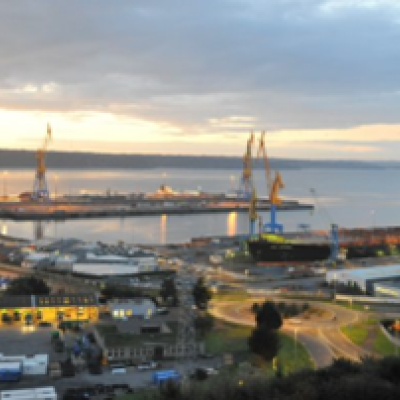Port environments, thanks to the diversity of use cases that they can offer (boat, trucks, crane, generators…), are a very interesting case study for energy transition and an effective lever of action.
The activities in this pilot aim to identify renewable hydrogen loops and associated logistics chains in port environments up to 2050. Ultimately, the definition of the energy requirements and facilities needed to deploy these hydrogen loops will determine the size of the infrastructures required for their development. The viability of these loops will be assessed from a technical, economic, financial, and regulatory point of view.
In Brittany, this study will be conducted on the ports of Brest and Saint-Malo.
A discussion with local actors and users of the port is required as a first step. It is the opportunity to communicate about the different uses of hydrogen and to show them to what extent it can be a solution for the future of their activities. This meeting also helps to discuss around their actual needs in energy. Finally, the participation at this study is the opportunity for them to contribute to the port’s energy future and anticipate the fuel-related need of their activities.
This study also involves numerous discussions with local hydrogen producers and distributors to define together the technical and economic constraints to identify a viable scenario for the development of renewable hydrogen at the port.
The results of the studies will be the basis for infrastructure’s investments required for the hydrogen development from 2027.
For more information contact:
Axelle Degueurce from Regional Council of Brittany

